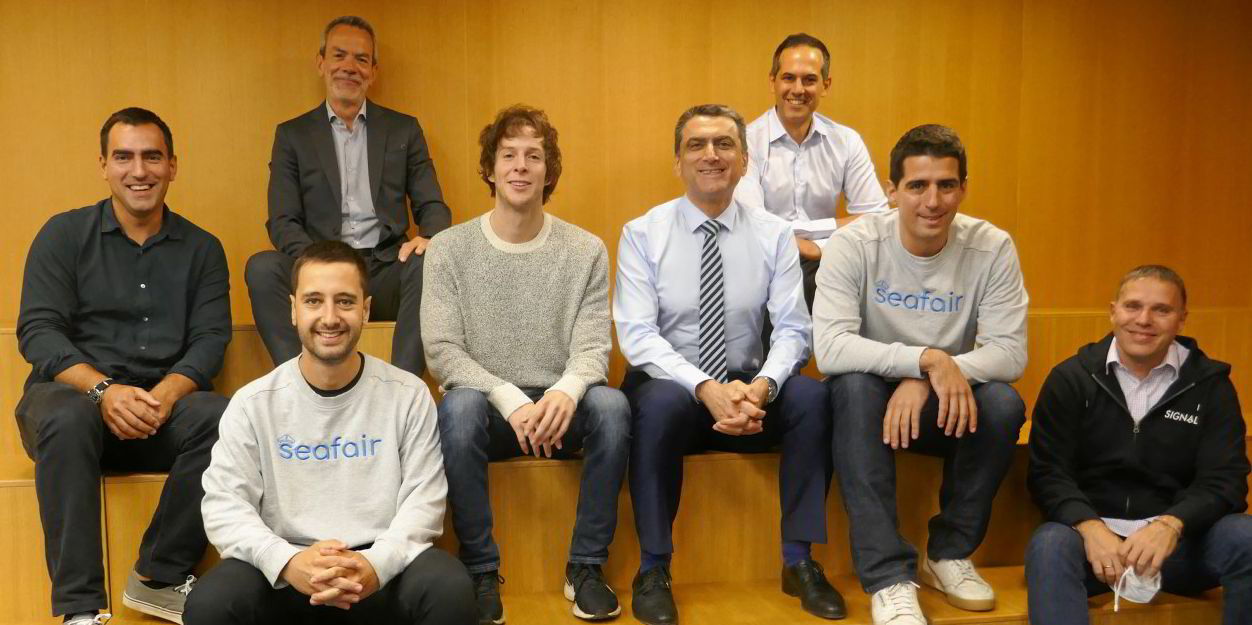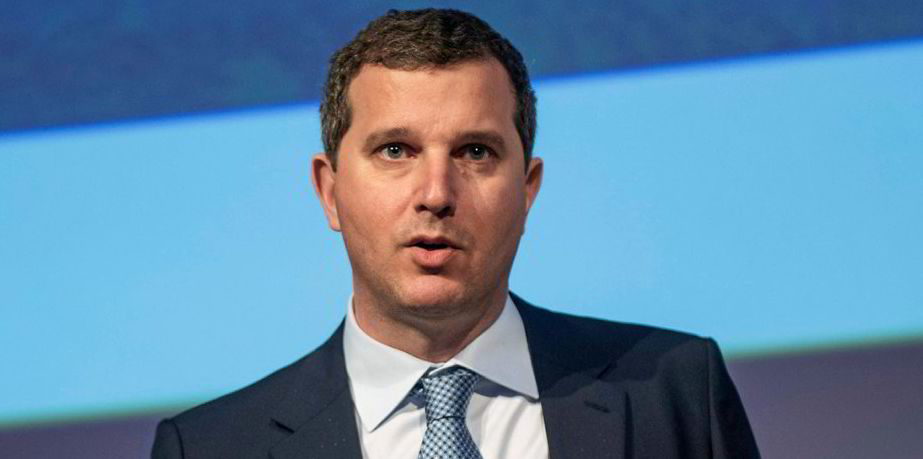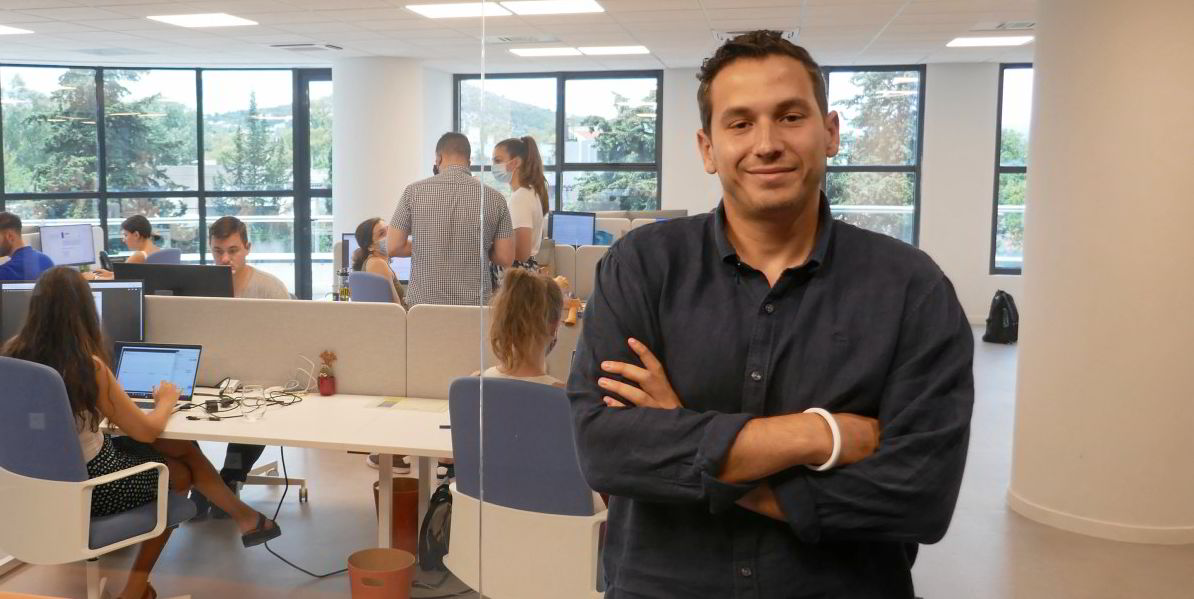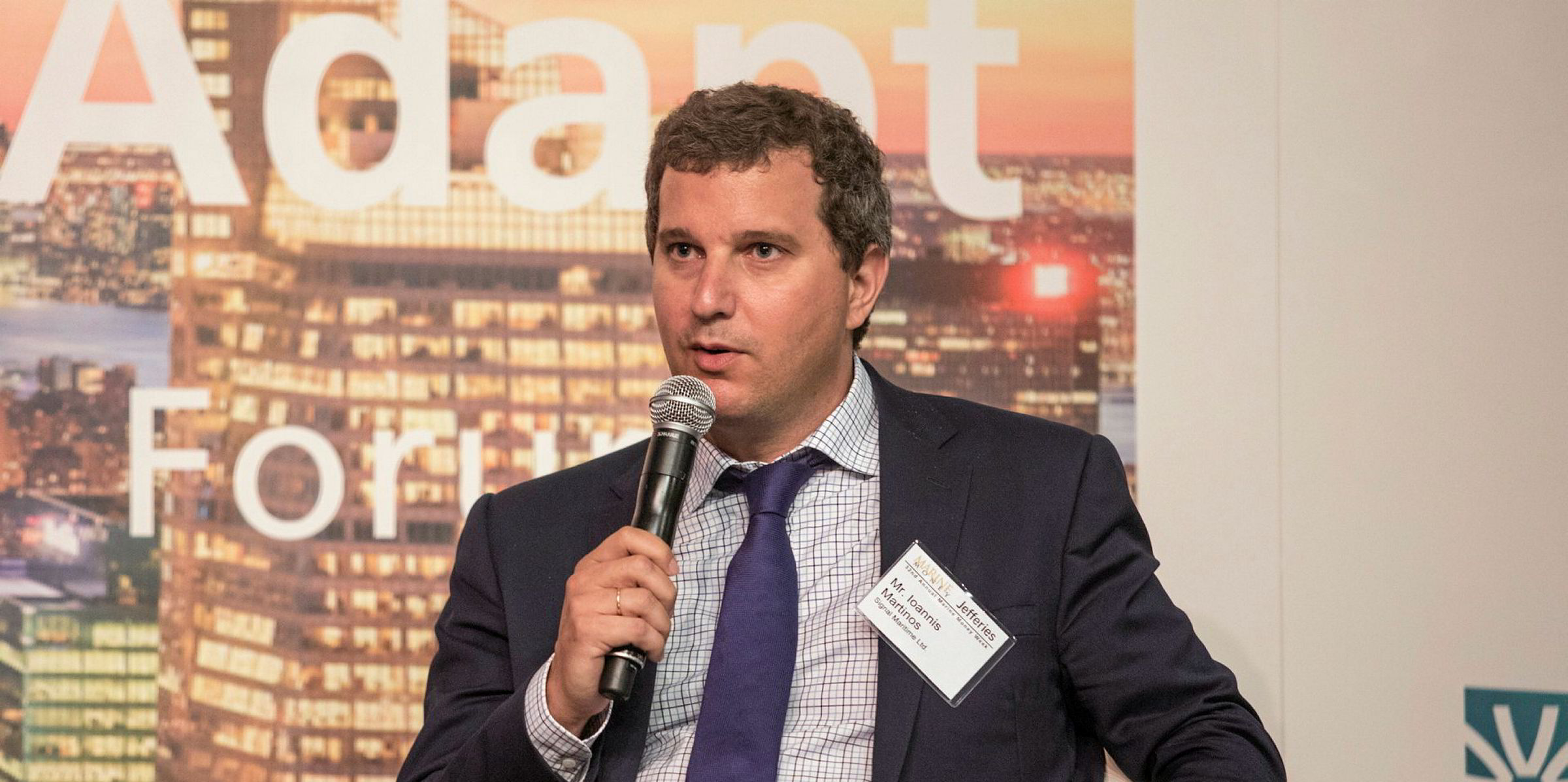If you believe Greek shipping nous is just about owning, operating and flipping vessels, think again.
A steadily growing number of young entrepreneurs have set up shop in Athens in recent years, offering a widening range of digital tech services to maritime companies.
From vessel monitoring to electronic procurement, crewing and billing, made-in-Greece software is making headway far beyond the country’s borders.
It took a lot of guts, work and some good fortune to get there, founders and senior managers of six such companies told TradeWinds in a group interview in the Athens office of one of them, Signal Ocean, on 5 May.
“When you start, everything is just super, super difficult,” said Roberto Coustas, co-founder and chief executive of DeepSea Technologies — an artificial intelligence (ΑΙ)-based platform that monitors ship performance.
When they were about to hire, nobody knew who they were. When they were about to develop software, they often found there was no hardware to go with it and they had to build the kit on their own.
Then came the natural resistance of potential clients deeply entrenched in their own practices and ways of thinking.
“‘What are you talking about?’ ‘This will never work.’ ‘That’s how we do things here’ — that’s the most common reaction one gets when introducing new ways of working and bringing change,” said Stavros Kokkinis, chief operating officer of Harbor Lab, a company offering digital tools for disbursement and port expenses management.
Greek shipowners have a reputation for being particularly conservative in that respect. Athens tech companies, however, have found that national stereotypes are misleading.
Finding clients in Greece can be as easy or as difficult as in every other region of the world, according to Mike Konstantinidis, chief executive of Metis, which specialises in the real-time retrieval and analysis of data from various parts of a ship.
“In every geography, you can find the early adopters and those unwilling to adopt any kind of change or technological breakthrough,” he added.
With a little help from above
In fact, Greece’s fledgling tech scene would have most likely remained a dream without the support of established local shipping players.
With a density of shipping companies per square mile unparalleled anywhere in the world, Athens and Piraeus offer rich pickings for start-ups already on location.
Clients won over at home can then help prise open business elsewhere.
“If the Greeks do it, then the rest of the market will follow,” said George Rovis, chief operating officer of Seafair, a start-up that developed a digital platform for maritime crewing.
Greece’s traditional shipping cluster has assisted the new tech shipping cluster in even more intricate and fundamental ways.
As far back as 2016, dry bulk giant Star Bulk Carriers provided a live environment, feedback and expertise to Aris Manassakis and Grigoris Lamprou, two young entrepreneurs, as they developed ProcureShip, a digital procurement platform.
Thenamaris was the original development and recruitment ground for Signal Ocean, whose AI-based intelligence platform is used by most of the world’s big tanker operators to improve chartering decisions.
Coustas is the scion of shipowner John Coustas, who was himself a pioneer in introducing shipping software to the Greek market in the 1980s. The Coustas family’s container ship company Danaos was an early strategic investor and client of DeepSea.
These examples show that the Greek tech cluster formed in a slightly different way from other similar clusters, said Dimitris Tsapoulis, chief operating officer of the Signal Group of companies and a former technology consultant.
“The Greek tech scene around shipping didn’t develop exactly the way we’re seeing other hubs, where firms get a bit of capital, a bit of experience, a bunch of pre-filtered potential design clients and then operate in a bootstrap mode in this sort of eco-system,” he said.
“Here, some companies will land clients first and then they will escape that perimeter and go globally.”
Spreading their wings
Greek shipping tech firms are growing out of their cocoons.
“Greece was a nice starting point but it’s definitely not what we were aiming at, going forward,” Coustas said.
Athens and Piraeus are big shipowning hubs but have little to offer in the way of chartering or ship management — both lucrative target markets in their own right.
Efforts to deepen and expand abroad are in full swing.
Signal, which says it already derives about 70% of its earnings from non-Greek clients, set up offices quickly in London and Singapore.
Seafair opened offices in the Philippines and in Ukraine, where its shipping company clients hire most of their crews.
Danish company Esvagt is using Metis technology to optimise routes for service-operation vessels shuttling between offshore wind farms.
Deep sea taps into the sales network of its shareholder Nabtesco Technology, which is the venture capital arm of a Japanese engineering firm.
Harbor Lab became the first Greek member of Blue Alliance Partners, a London-based sales accelerator for maritime companies.
Getting feedback from foreign companies outside one’s own Greek comfort zone can be a vital reality check.
“You can get wrong feedback from wrong clients,” Coustas warned.
Byron Antoniadis, Seafair’s chief technology officer, added: “One must really avoid focusing on one or two clients to get one’s feedback.”
Above all, caution is the watchword. “You should be asked at least six times before you try to build something,” Tsapoulis said.






